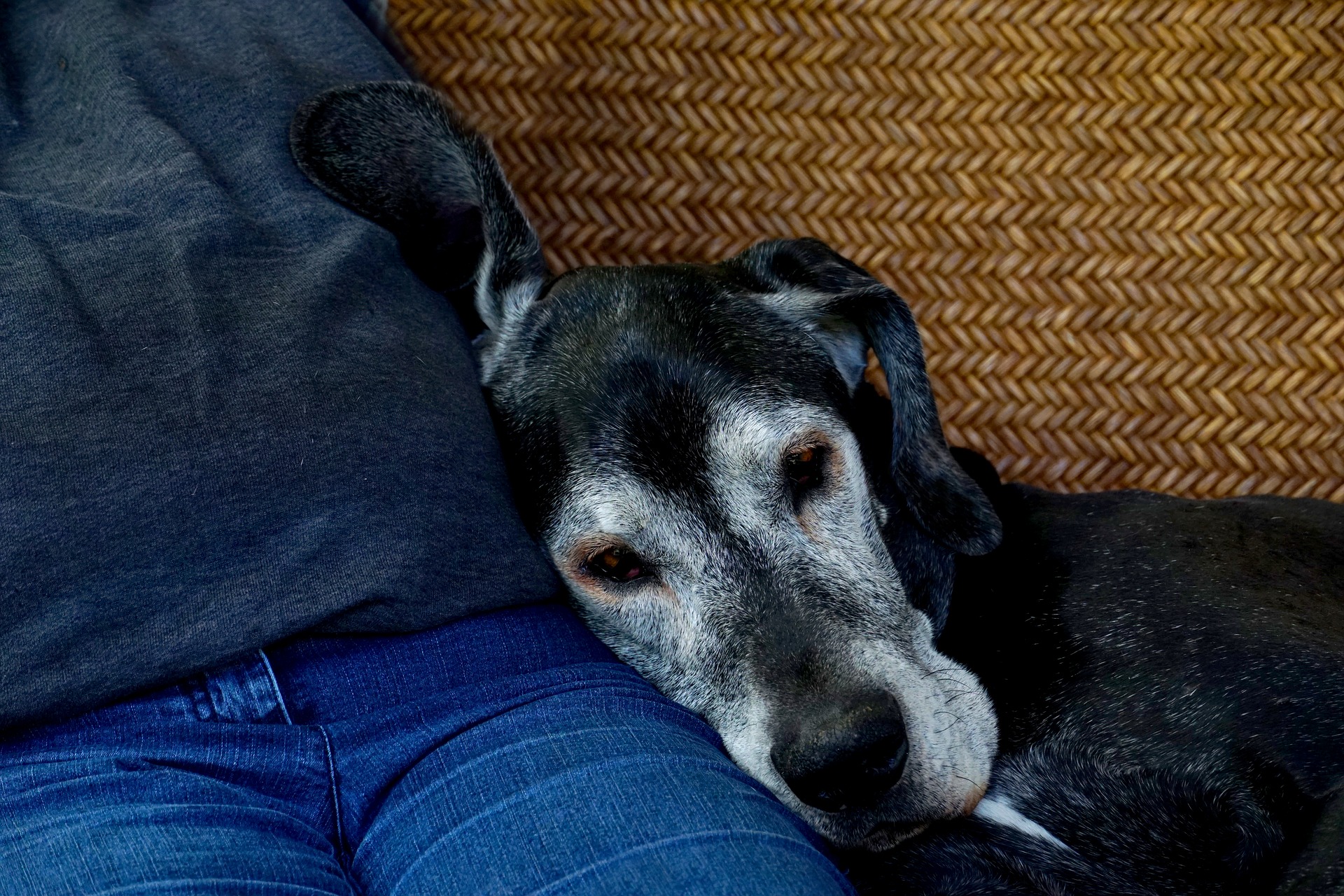
We all want to care for our dog as they reach their senior years.
Close to 70% of households in the United States own a dog.
Sadly, as our dog ages the excitement of the fluffy little puppy you brought home can fade or at least diminish. Some children that showed so much love to younger dogs seem to have challenges caring for them as they reach their senior years. Health, travel, and family vacations all must be considered and planned for with an older dog.

Unfortunately, many older animals including dogs end up in a shelter. Placement can take up to 4 to 5 times longer for a senior dog to be placed in a new home. Dogs that cannot be placed in a new home are usually put down. Over 150,000 animals are euthanized each year, many of them are dogs.
Older dogs may not have the youth and exuberance of a puppy or a younger dog, but they are mature, typically housebroken and will not chew up your couch pillows like a puppy. They still have plenty of affection and love to share with the right family. They just want to be fed, give and share love, and some hugs.
If you might be considering adopting an older dog, or you already have an older dog, below are some helpful tips to assist in their care
Exercise
As older dogs start to age it is still important to remember that exercise is a good thing. Use it or lose it applies to dogs as well as us. Joint health, heart health and appetite are all related to exercise and mental well being for your dog. While your dog may not be able to run on the beach like he used to, that does not mean they should not go on walks. If your dog has been sedentary, just be sure to bring your dog along gradually and not to overwork them. Provide plenty of hydration and rest stops. For serious conditions always check with your vet before starting an exercise program.

Arthritis
If your dog has a noticeable limp or seems to be in any discomfort or pain, it could be a sign of arthritis. Arthritis is common in older dogs and if you suspect your dog may have arthritis schedule an appointment with your veterinarian right away. Medications can be prescribed to relieve discomfort.

Keep an eye out for Parasites
Most dogs of all ages are prone to various parasites. As dogs get older their immune system becomes weaker and more risk can be involved. Have regular checkups for worms, ticks, fleas, and any other pest common to your area.
Only Use High-Quality Food
When it comes to feeding your older dog do not skimp on low quality food. Feed your dog a high-quality grain free brand of dog food. This will not only keep your dog at a healthy weight, but help his heart, bones, digestive system and contribute to his overall health. Many brands have food especially formulated for older dogs. Choose a food that has high quality protein and moderate fat content.

Teeth
Many people do not consider this, but you should always brush your dog’s teeth. Tarter buildup can cause gum disease such as gingivitis. This can cause harmful bacteria to get into your dog’s bloodstream compromising his blood and internal organs. Use teeth healthy treats and consider have your dog’s teeth cleaned professionally once or twice a year.

Make Your Home Senior Dog Friendly
There are many things you can do to make life in your home easier for your dog. A comfortable bed, limiting the use of stairs and having food and water at an easy level for them. Joint comfort can be an issue if your dog must lie on a hard surface, or has to stoop to low to eat, or climb a flight of stairs.
Have Regular Checkups With The Veterinarian
Your dog should have regular checkups especially as they get older. His weight, and overall health should always be considered and maintained. Your veterinarian can provide a complete checkup for your dog to identify any issues.